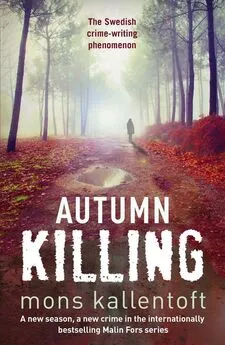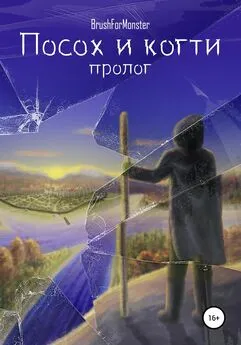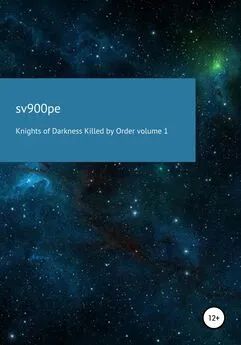Mons Kallentoft - Autumn Killing
- Название:Autumn Killing
- Автор:
- Жанр:
- Издательство:неизвестно
- Год:неизвестен
- ISBN:нет данных
- Рейтинг:
- Избранное:Добавить в избранное
-
Отзывы:
-
Ваша оценка:
Mons Kallentoft - Autumn Killing краткое содержание
Autumn Killing - читать онлайн бесплатно полную версию (весь текст целиком)
Интервал:
Закладка:
A weak-willed drunk, just someone else who can’t resist the slightest internal demon.
Call me a shit. An arsehole.
But neither of her two colleagues says anything.
They’ve forced her to take two aspirins and two hydration tablets, and now she knows they’re expecting her to finish the coffee.
They go out into the hall, she can hear them talking. Hears Sven say: ‘I’ll keep an eye out, keep her on her feet, we can’t manage without. .’
Zeke: ‘She needs a detox clinic.’
Is that really what he says? I must have heard wrong. He’d never say something like that.
They come back. They stand beside her in the kitchen without speaking.
And when the coffee is finished Sven says: ‘Get some clothes on, then you and Zeke get over to Soderkoping. You’ve got a job to do.’
Somehow Malin has survived the drive, she has no idea how, and now, just before lunchtime, she and Zeke are standing in a room with flowery wallpaper in Soderkoping’s rehabilitation home. In front of them sits Ingeborg Sandsten in a deep-red armchair. Beside her lies Jasmin Sandsten in a blue wheelchair, and under a leaf-green blanket they can see her spastic body, twisted by years of involuntary muscle spasms. One of her brown eyes is open, the other closed, and her gaze betrays no sign of conscious life. Jasmin Sandsten breathes in heavy rattles and sometimes lets out a growling sound, and every time the sound escapes from her mouth her mother reaches over and wipes the saliva from the corner of her lips with her right hand.
A window in the background. A bare, wind-tormented tree, a desolate canal path that seems to be waiting for summer visitors on bikes and the canal company’s old white-painted passenger boats full of American tourists.
A mother who has never strayed from her daughter’s side, Malin thinks, feeling a deep respect for the two strangers in the room. Even if Jasmin doesn’t know what’s going on around her, she must know that she hasn’t been abandoned. Do you know, Malin thinks as she looks at the girl in the wheelchair, that you’ve got pure love on your side? Your mother is what people ought to be like. Isn’t she?
If Tove had ended up like this.
What would I have done? I can’t even bear to think about it.
‘We should have been in Tenerife,’ Ingeborg Sandsten said, laying her thin hands on her equally thin thighs. ‘At the Vintersol rehabilitation centre, but they turned us down at the last minute when they found out how badly handicapped Jasmin is. So we came here instead. This is very nice too.’
Malin’s first thought is: ‘What a coincidence. I’m just back from there,’ but that would have been an insult to the mother and daughter who never made it.
Ingeborg Sandsten’s face is thin and lined, showing signs of never-ending exhaustion, and the woman’s tiredness makes Malin feel more alert.
‘I’ve looked after Jasmin since the accident. I get money from the council to be her carer.’
‘Can she hear us?’ Zeke asks.
‘The doctors say she can’t. But I don’t know. Sometimes I think she can.’
‘Our colleagues spoke to your former husband yesterday,’ Malin says.
‘He’s still angry.’
‘Has he spoken to you? Have you heard what we suspect happened on the night of the accident?’
‘Yes, he called me.’
‘And what do you think?’
‘It might be true, but it doesn’t make any difference, does it?’
‘You didn’t know anything about that?’ Malin asks.
‘I see what you’re getting at. I didn’t know. And I was here with Jasmin all last week.’
Then the growl from Jasmin as her face contorts in unimaginable pain. She must have been very pretty once upon a time. Ingeborg wipes her grown-up daughter’s mouth.
‘Did Jasmin know Jerry Petersson before the evening of the accident? Do you remember?’ Malin asks, aware that she’s fishing, casting out nets and hooks, trying to catch underwater voices.
‘I don’t think so. She’d never mentioned him. But what do any of us know about the lives of teenagers?’
‘And the Fagelsjo youngsters? Did she know them?’
‘She was in a parallel class to Katarina Fagelsjo. But I don’t think they were friends.’
‘So you didn’t know anything about what happened that night?’ Zeke asks again. ‘That it might have been Jerry Petersson driving?’
‘What do you think?’ Ingeborg Sandsten said. ‘That Jasmin might have told me?’
Two dozen heavy raindrops hit the windowpane like a salvo.
‘Deep inside her dreams Jasmin remembers what happened,’ she goes on. ‘Deep, deep inside.’
The car pushes through the waterlogged landscape of Ostergotland. Grey, lifeless forests, lonely grey fields, grey houses.
Zeke’s hands firmly gripping the steering wheel.
Malin takes a couple of deep breaths.
‘It was you who asked Sven to talk to me, wasn’t it?’ she asks.
Zeke takes his eyes from the road for a moment. Looks at her. Then nods.
‘So are you angry now, Malin? I had to do something.’
‘You could have said something to me directly.’
‘And you’d have listened, would you? Sure, Malin, sure.’
‘You went behind my back.’
‘For your own good.’
‘You go behind a lot of people’s backs, Zeke. Think about what you could lose.’
Zeke takes his eyes from the road again. Looks at her, before his hard green eyes fill with warmth.
‘Nobody’s perfect,’ he says.
‘Birds of a feather flock together,’ Malin retorts, then the sound of the car engine takes over and she swallows some saliva to suppress the lingering nausea.
Her mobile rings when they’re about ten kilometres from Linkoping.
A number Malin doesn’t recognise. She takes the call.
‘This is Stina Ekstrom. Andreas’s mum.’
‘Hello,’ Malin says. ‘How are you?’
‘How am I?’
‘Sorry,’ Malin says.
‘You asked if I remembered anything particular about the time leading up to the accident. I don’t know if it means anything, but I remember one of Andreas’s friends from when he started high school. Anders Dalstrom. He and Andreas were friends, it started when we moved to Linghem and he started secondary school. I seem to remember that Andreas looked after him. But they didn’t see so much of each other when they started at different high schools. I remember him from the funeral. It looked like Andreas’s death hit him hard.’
‘Do you know where he is now?’
‘I think he still lives in the city. But I haven’t seen him for a long time.’
‘So they were friends?’
‘Yes, in secondary school out here.’
Then Stina Ekstrom falls silent, but something stops Malin from ending the call.
‘We were angry back then,’ Stina Ekstrom goes on. ‘Jasmin’s parents were angry. We’d both lost our children, in different ways. But anger doesn’t get you anywhere. I’ve learned that all we have in the end is how we treat our fellow human beings. We can choose. To empathise, or not. It’s as simple as that.’
45
Follow the voices of the investigation, Malin.
Follow them into the darkest of Ostergotland’s forests if that’s where you hear them whispering. Snatch at every straw in the really hard cases.
The dense forests around Malin and Zeke are suffering from the same loss of colour as the sky, as if the whole world has been adapted for the colour-blind. The leaves on the ground are black here, they’ve got none of their burning colours left. The smell of their decay almost seems to make its way inside the car, pungent and simultaneously ominous.
Then she sees the little single-storey house in a patch of woodland a few kilometres south of Bjorsater, its rust-red colour almost seething in the persistent rain and dead afternoon light.
The investigation’s latest voice belongs to Anders Dalstrom. Malin doesn’t yet know how he fits into the case.
Follow the voices of the investigation until they fall silent.
Then you follow them a bit further, and sometimes you might get a reward in the form of a connection, a context, the truth.
That’s what people want from us, the truth, Malin thinks.
No more, no less.
As if the truth would make them any less afraid.
They stop the Volvo in the raked gravel drive in front of the house. A red Golf is parked outside a workshop. If Skogsa was a box, Malin thinks, you could fit thirty houses like this one inside it.
On the front door is a handwritten sign with Anders Dalstrom’s name. The door opens, and in front of them stands a man in jeans and a Bob Dylan T-shirt. His face is thin, but his nose is stubby and his cheeks covered with acne scars.
‘Anders Dalstrom?’ Zeke asks.
The man nods, and his long black hair moves in the wind.
‘Could I have a glass of water?’ Malin asks when they enter the shabby kitchen.
Dalstrom smiles: ‘Of course.’
His voice is hoarse and gruff, wary but still strong and friendly. He hands Malin a glass with his right hand.
Concert posters from EMA Telstar cover the walls of the kitchen. Springsteen at Stockholm Stadium, Clapton at the Scandinavium in Gothenburg, Dylan at the Ice Hockey Hall in Stockholm.
‘My gods,’ Dalstrom says. ‘I never quite made it.’
Malin and Zeke are sitting on an old-fashioned kitchen sofa, slowly drinking freshly brewed hot coffee.
‘You play?’ Malin asks.
‘More when I was younger,’ Dalstrom replies.
‘You wanted to be a rock star?’ Zeke asks, and Dalstrom sits down opposite them, takes a deep gulp of coffee and smiles again. The smile makes his snub-nose look even smaller.
‘No, not a rock star. When I was younger I wanted to be a folk singer.’
‘Like Lars Winnerback?’ Malin asks, remembering the sold-out concert she attended at the Cloetta Center when the city’s most famous son came back to perform.
‘I’d have liked to be Lars Winnerback. But it never took off.’
You’re still waiting, aren’t you? Malin thinks.
‘I’ve got a studio over in the workshop. I built it myself. Record my songs in there. But not that often these days. Work takes it out of me.’
‘What’s your job?’
‘I work nights at the old people’s home in Bjorsater, so I’m knackered all day. I worked last night, and I’m on again tonight.’
Malin had begun their conversation by explaining to Dalstrom why they were there, and what they had found out about Jerry Petersson and the night of the accident, and what Andreas’s mother had told them. Maybe I should have held back, she thinks now. But her brain is too slow for that, and there are no reasons at all to suspect Dalstrom of anything.
‘Did you have any success?’ Zeke asks. ‘With your music?’
‘Not much. In high school I used to get asked to play at parties, but that stopped after graduation.’
‘Did you know Jerry Petersson back then?’
‘Not at all.’
‘You weren’t at the same school?’
‘No. He and Andreas were at the Cathedral School. I went to Ljungstedt.’
‘So you didn’t know Jerry?’ Malin asks.
‘I just told you that.’
‘What about Andreas? His mum said you were good friends.’
‘Yes, we were. We used to stick together. Look out for each other.’
‘How do you mean?’ Malin asks.
‘Well, we did stuff together. Used to sit next to each other in class.’
‘Did you grow up together?’
‘We were in the same class in Linghem. From year seven, when Andreas moved there.’
Malin sees herself in the school playground in Sturefors with her classmates, most of them scattered across the country now. She sees the bullies, the boys who made a habit of attacking anyone with an obvious weakness. She can still remember the bullies’ names: Johan, Lass, and Johnny. She can still remember her cowardice, how she wanted to tell them to stop, but for some reason she always found an excuse not to.
Читать дальшеИнтервал:
Закладка:


![Альфред Ван Вогт - Чудовище / The Monster [= Пятый вид: Загадочное чудовище; Воскресшее чудовище; Возрождение]](/books/155614/alfred-van-vogt-chudoviche-the-monster-pyatyj-v.webp)






